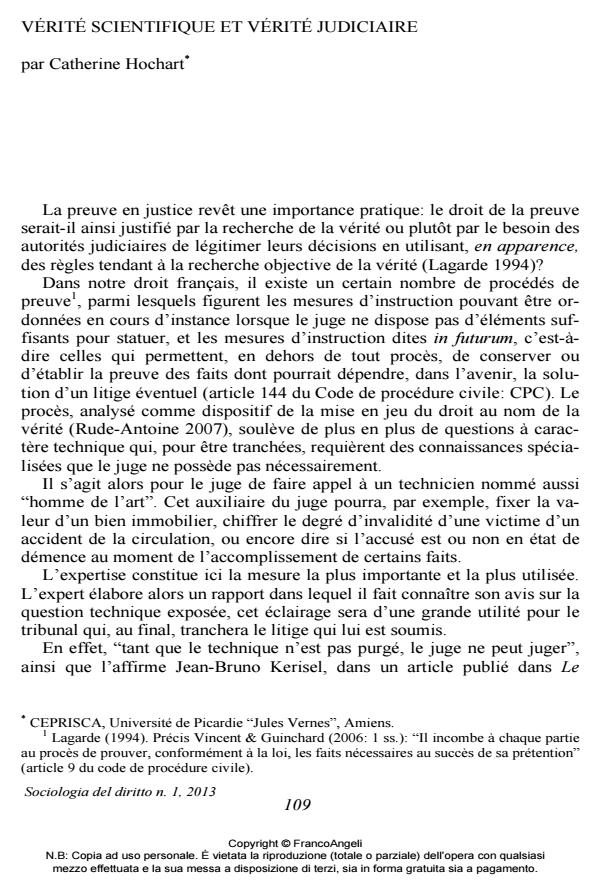Vérité scientifique et vérité judiciaire
Titolo Rivista SOCIOLOGIA DEL DIRITTO
Autori/Curatori Catherine Hochart
Anno di pubblicazione 2013 Fascicolo 2013/1
Lingua Francese Numero pagine 16 P. 109-124 Dimensione file 214 KB
DOI 10.3280/SD2013-001008
Il DOI è il codice a barre della proprietà intellettuale: per saperne di più
clicca qui
Qui sotto puoi vedere in anteprima la prima pagina di questo articolo.
Se questo articolo ti interessa, lo puoi acquistare (e scaricare in formato pdf) seguendo le facili indicazioni per acquistare il download credit. Acquista Download Credits per scaricare questo Articolo in formato PDF

FrancoAngeli è membro della Publishers International Linking Association, Inc (PILA), associazione indipendente e non profit per facilitare (attraverso i servizi tecnologici implementati da CrossRef.org) l’accesso degli studiosi ai contenuti digitali nelle pubblicazioni professionali e scientifiche.
Il processo, analizzato come dispositivo della messa in gioco del diritto nel nome della verità, solleva sempre più spesso questioni di carattere tecnico che, per essere risolte, richiedono delle conoscenze specialistiche che il giudice non possiede necessariamente. Il giudice fa appello allora a un tecnico esperto che può, per esempio, stabilire il valore di un bene immobiliare o misurare il grado di invalidità della vittima di un incidente stradale. Così l’esperto e il giudice operano in comune e attivamente alla ricerca della verità. Ma mentre il primo si attacca alla verità tecnica e scientifica dei fatti, l’altro cerca di stabilire la verità giudiziaria del caso. L’esperto sarebbe il "giudice" del fatto; il giudice, dal canto suo, si occuperebbe del diritto. Tuttavia, l’esperto gioca a volte un ruolo più importante di quello che gli ha assegnato la legge, in particolare nella costruzione delle convinzioni dei giudici
Parole chiave:Verità, Processo, Giudice, Esperto, Prova, Diritto e scienza
Catherine Hochart, Vérité scientifique et vérité judiciaire in "SOCIOLOGIA DEL DIRITTO " 1/2013, pp 109-124, DOI: 10.3280/SD2013-001008